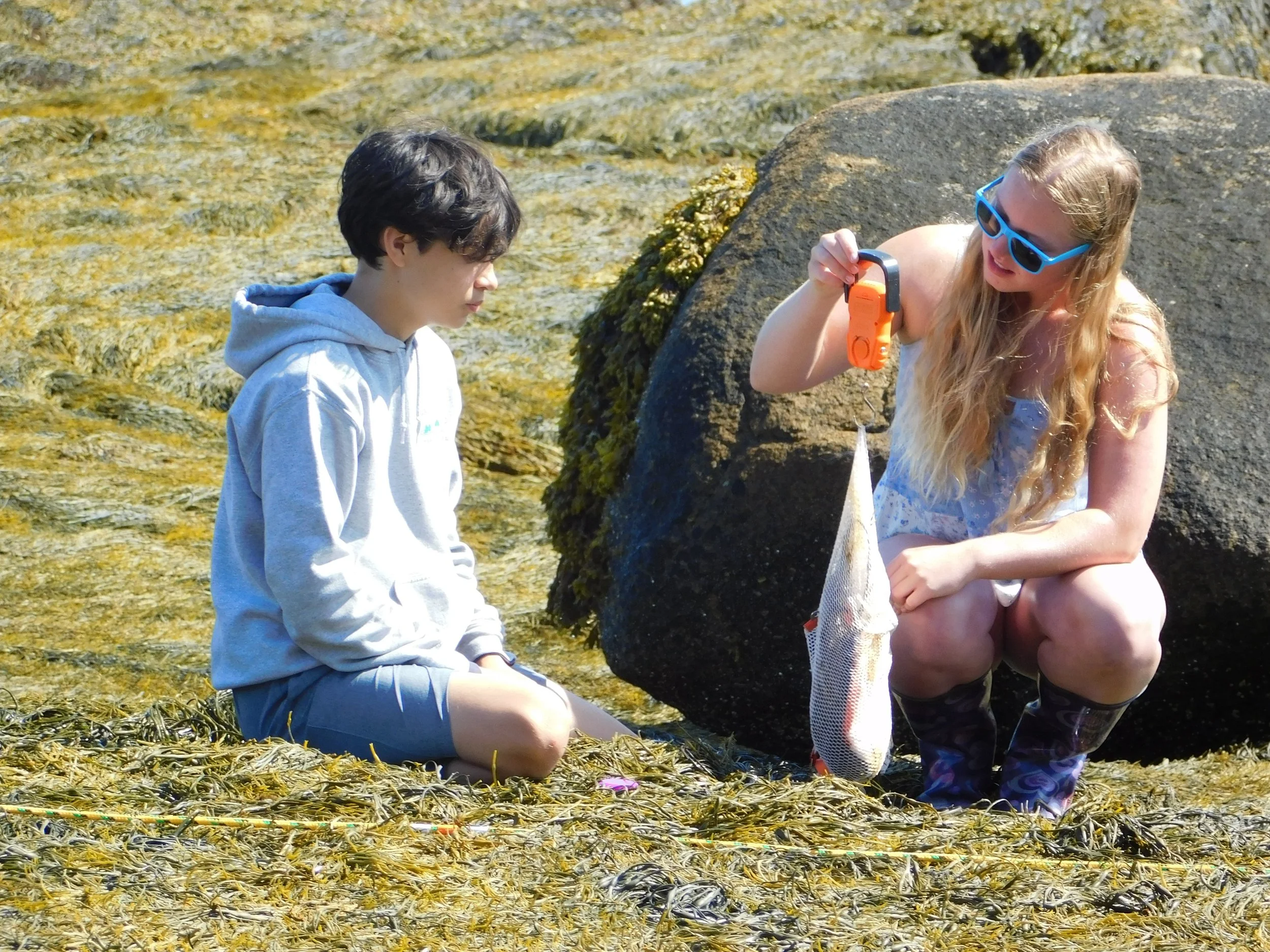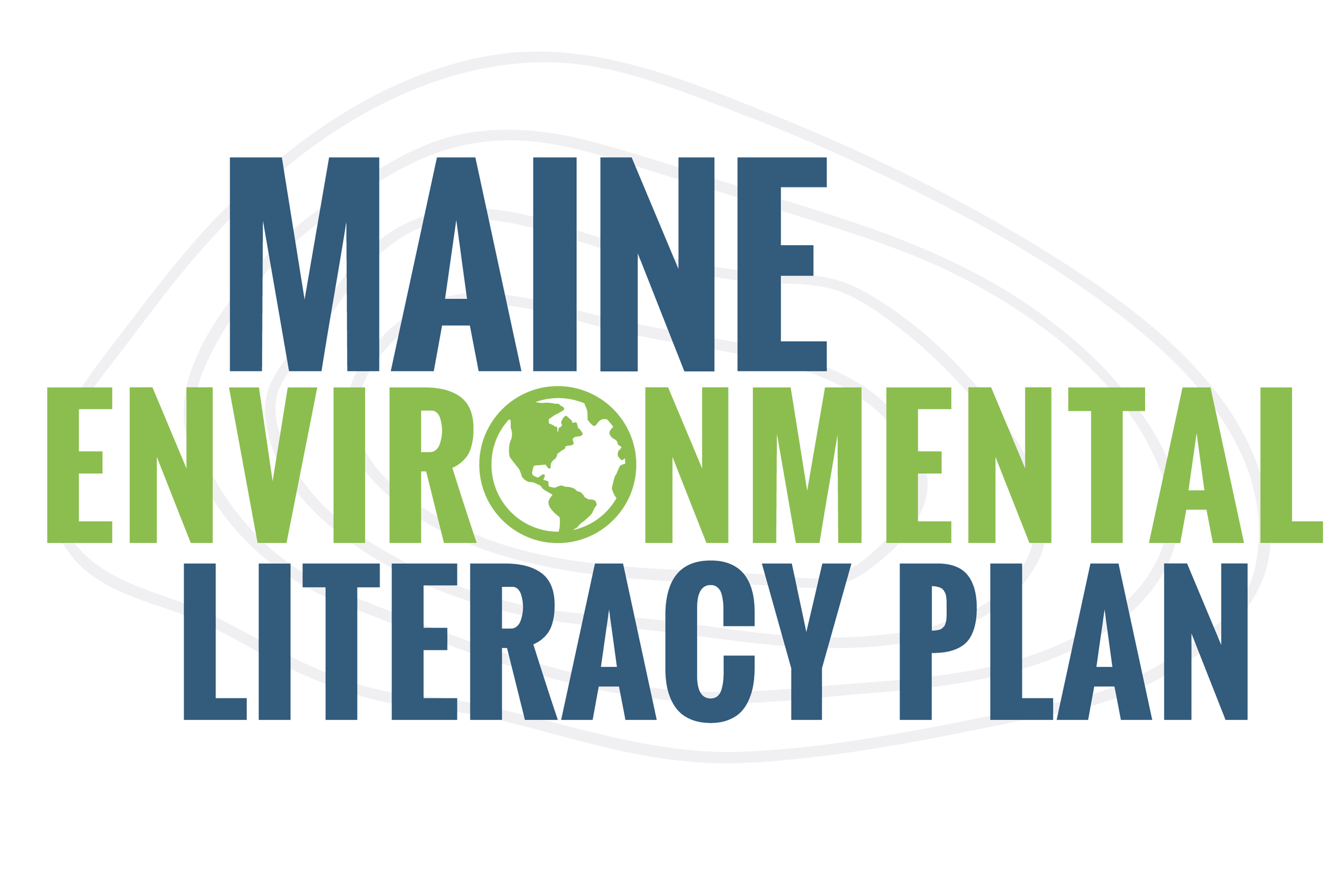
Direct Educator Support
What do you need to
advance your practice?
Anna Sommo, Director of School and Community Partnerships can help connect you to resources, other community partners, and answer your questions about outdoor learning and environmental education in schools.
To opt into weekly emails from Anna about professional development and other opportunities, please enter your email address here.
Professional Development Workshops
-
Building a Culture of Teaching Outside Workshops
These workshops are in-person throughout Maine for educators to network, build skills, and learn about open source resources to sustain a culture of outdoor learning in their schools and programs. MEEA partners with Teach ME Outside to host these workshops.
Learn more about upcoming workshops here.

-
Wabanaki Studies Workshops
These Spring 2024 in-person workshops are facilitated by Brianne Lolar, a Panawahpskek citizen and Wabanaki Studies specialist for the Maine Department of Education. You’ll get hands on with current resources available and support one another with this work. This material represents a continuing collaborative effort between the Wabanaki nations, Indigenous and non-Indigenous educators, districts, and other organizations.


The Maine Climate Education Hub offers free resources to teach about climate change.
Standards-aligned educational resources to support Maine educators in incorporating climate literacy into their curriculum
Free Lesson Plans
Click the (+) plus sign to read about and view the website for each free resource.
-
View lesson plans here. Seven different modules that include multiple lessons and resources created by Brianne Lolar, Panawahpskek Citizen & Wabanaki Studies Team Leader at the Maine Department of Education, working with many Wabanaki advisors.
Grade Level: Pre-K - Grade 12
-
OpenSciEd exists to change the status quo and remove the predictability about who succeeds and shows affection for the STEM fields. These lessons are intended for classroom educators.
Grade Level: 6-8; NGSS Aligned
Topics covered: Light and matter, thermal energy, weather, climate, chemical reactions, metabolic reactions, matter cycling
Learn more and view curricula here. -
View resources here. Winter Kids’ Learning Outside Guide makes it easy for educators to integrate fun, outdoor activities into their winter lessons. Early Childhood, Common Core Standards Aligned. Includes an online training module.
Topics Include: Art, Language Arts, Math, Science, Social Studies, Physical Education
Grade Level: K - 8
-
View resources here. Teach ME About Food & Farms offers free lessons about Maine agriculture. Common Core Standards Aligned, Maine Learning Results Aligned
Topics Include: Maine agriculture, aquaculture, school gardens, nutrition
Grade Level: Pre-K - Grade 12
-
View Learning Resource Hub here. GMRI designs science learning resources to support educators to engage their students in authentic and current science about climate and ecosystem change. NGSS and Common Core Standards Aligned.
Topics Include: Climate Change, Data, Ecosystems, Fisheries, Gulf of Maine, Invasive Species, Modeling, Outside, Scientific Investigation, Scientific Writing, Species Identification, Watershed
Grade Level: K - 12
-
Audience: Educators in outdoor science education settings
Grade level: Primarily Grade 3-8 but adaptable for older and younger students
Click the links to view lessons:
Outdoor Science Experiences
Classroom and Schoolyard Experiences
Equity, Inclusion, and Cultural Relevance -
View resources here. Project Wild is a series of activities designed for all educators in PreK-12 settings. Project Wild activities provide wildlife-based conservation and environmental education meant to foster responsibility towards wildlife and natural resources. Aligned with NGSS, Head Start Early Learning Outcomes Framework, and CCSS standards.
Grade Level: Pre-K - Grade 12
Topics Include: Terrestrial Wildlife, Habitats, Aquatic, Ecological Concepts, Wetland Wildlife, Birds, Student Connection to Wildlife and the World -
View resources here. Project Learning Tree provides multi-disciplinary, hands-on lessons for all grade levels to help develop awareness, knowledge, and appreciation of the environment, and to build students’ skills to make informed decisions for sustaining the environment. Common Core, NGSS, C3, and Head Start Aligned.
Grace Levels: Early Childhood, K-12, Family activities
Topics Include: Multidisciplinary activities to connect children to nature; Sensory exploration to understand objects, spaces, people and interactions; K-2 learners’ relationship with nature and trees
Click the (+) plus sign to read about and view the website for each free resource.
-
View resources for Wabanaki Studies here. These resources support PK-12 educators in integrating Wabanaki Studies into existing curricula. This material represents a continuing collaborative effort between the Wabanaki nations, Indigenous and non-Indigenous educators, districts, and other organizations. Resources included here are not comprehensive or definitive but rather represent high-quality materials that are widely available.
Grade Level: Pre-K - 12
-
View Wabanaki Studies Planning Guide here. This guide is meant to help educators in the absence of an official state or district Wabanaki Studies curriculum, though it is not a curriculum in itself. There are links to curricular resources in the compendium section. In the absence of appropriate teacher preparation for Wabanaki Studies in teacher education programs, teaching Wabanaki Studies in the classroom presents many challenges. It is the responsibility of all educators to teach Wabanaki Studies, and it is also our responsibility to do it well. Please take the time to learn, reflect, and thoughtfully prepare.
-
View the guidebook here. This guidebook offers ways to introduce your community to the outdoors. It offers the following three benefits — 1) A starting point to facilitate conversations about creating and supporting a culture of bringing students outside at your school; 2) A set of practical tools for bringing students outside; and 3) Resources and guidance for how to explore this type of education further.
-
Learning in Places is a pedagogy that centers racial equity, ethical, evidence-based decision-making, and just relations with the natural world. We offer materials for professional development, classroom learning, outdoor learning, and family engagement.
Grade Level: Pre-K - 5th grade (and beyond) and their families
View resources at the links below:
Ethical Deliberation and Decision Making
Complex Socio- Ecological Systems
Phrenology
Relationships In Socio- Ecological Systems
Socio- Ecological Histories of PlacesCulture, Families, and Communities
Family and Community
Culture, Learning and Identity
Nature-Culture Relations
Power and HistoricityField Based Science Learning
Modeling and Forming Explanations
Wonderings, “Should We” and Investigation Questions
Observations and Data Collection -
Maine Trail Finder is a free, interactive mapping site designed to help Maine residents and visitors find hiking, walking, snowshoeing, mountain biking, cross-country skiing, and paddling trails across the state. Our goal is to help people get out, be active, and explore our state’s treasures, both those well-known and more hidden.
To find trails near schools, click here.
click here.
Navigate to Popular searches in the bottom right. Select “Trails Near Schools”
To find gear loan and rentals, click here.
Navigate to Services in the top menu ber. Then go to Type of Service, and click “Gear/retail/rentals”. -
View free virtual workshop series here.
Registration is FREE and there will be plenty of draw prizes for attendees! All registrants will receive a discount code to access outdoor learning resources when they register
Workshops are 60 minutes and will take place at 4pm Pacific / 7pm Eastern
For those who can’t attend live these will each be recorded and posted on our Recordings Page.
Following the workshop, participants will receive a link to access a Certificate of Attendance.
Free Recommended Educator Resources
2022 Census of Community-Based Environmental Learning
The 2022 Census of Community-Based Outdoor and Environmental Learning in Maine is a follow-up study to the 2019 Census that provides a clearer understanding of how to equitably meet the needs of learners and educators in environmental learning today and into the future.
917 individual responses representing 622 schools, businesses, and organizations from every county in Maine responded to the 2022 Census
The newly revised Maine Environmental literacy plan outlines goals and strategies to provide essential learning opportunities for all Maine youth to develop knowledge, skills, and attitudes that grow student’s ability to care for the people, communities, and the land and waters we all depend on for health and well being. MEEA played a critical leadership role, collaborating closely with the Maine Department of Education and other educators and environmental education organizations to revise this important plan. The plan has unprecedented support across state agencies. The plan was adopted and signed by the Commissioner of the Maine Department of Education, Pender Makin, and includes a message of support from Governor Janet Mills and a letter of support signed by five other agency Commissioners.
Maine is a national leader in environmental education and outdoor learning, and this newly revised plan sets a bold vision for how we can increase collaboration across schools, caregivers, community organizations, government agencies, and other key stakeholders to ensure that all Maine youth, from birth to 18, have access to quality environmental and outdoor learning opportunities throughout their lives.
This updated plan defines environmental literacy, makes a case for why an environmentally literate citizenry is critical for Maine’s community health and well-being, and defines core goal areas and strategies to advance environmental literacy for Maine youth. This plan also suggests approaches to implementation and highlights useful resources and inspiring Maine-based case studies. The plan is designed to be a living document that shares concrete goals and strategies to guide the advancement of environmental literacy for Maine’s youth in the next five years.









